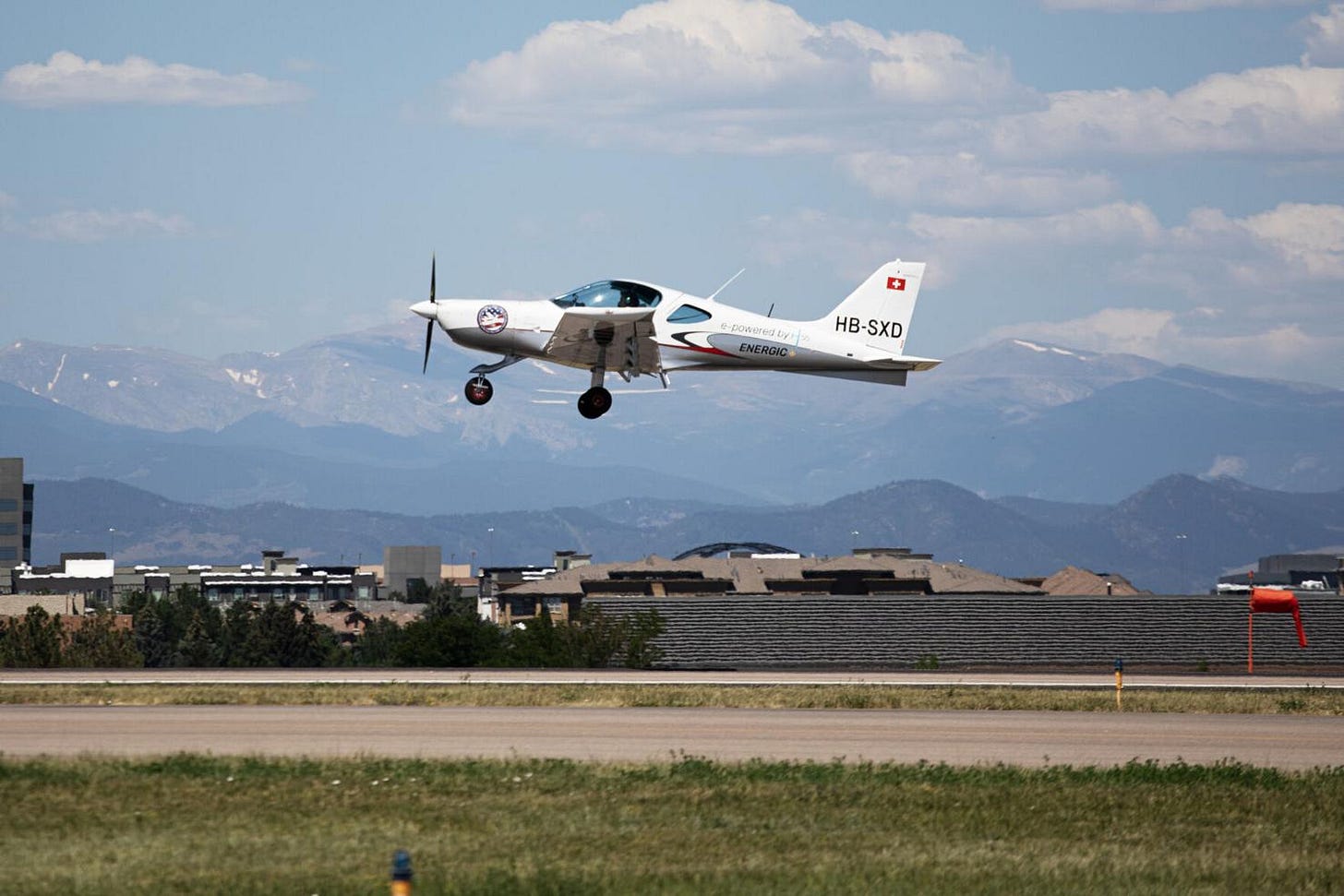#Sustainability20: Japan begins domestic supply of SAF at Haneda airport & more
Weekly Roundup - 11/07/25
Each Friday, we publish a round-up of the 20 most important stories on sustainable aviation. You can see previous editions of #Sustainability20 here.
Industry updates
President Trump has signed the "One Big Beautiful Bill Act," extending the 45Z clean fuel tax credit until 2029 but capping SAF benefits at $1 per gallon and restricting feedstock origins to North America.
Bristol Airport has launched a Supply Chain Sustainability Charter to cut emissions and waste, aiming for net-zero operations by 2030. Suppliers will be scored on environmental performance, including Scope 3 emissions.
There are now 92 US cities and airports planning for eVTOL commercial operations - Unmanned airspace
The US has 92 advanced air mobility projects underway, with Florida leading at 24 sites. New York, Miami, and San Francisco are among the frontrunners for early eVTOL operations, which are expected by 2026.
NBAA has criticised an ICCT report on private jet emissions, calling it flawed. It highlights aviation’s 40% emissions drop since 1980 and its net-zero 2050 goal via SAF and new tech.
Eight nations, backed by the EU, propose levies on premium flights and private jets to fund climate action, targeting €78bn annually. IATA opposes, citing existing CORSIA measures and economic risks.
Amsterdam Schiphol is suing a nearby solar farm over glare disrupting pilots. Runway closures occurred earlier this year, and the issue may resurface in August, prompting legal action for panel removal.
CLIMATE WATCH: ‘Stable’ Patagonia glacier could be in irreversible decline - The Guardian
Argentina’s Perito Moreno glacier, once stable, is retreating rapidly, losing 1.92 sq km since 2018. Scientists warn the trend may be irreversible due to rising temperatures and increased calving events.
Infrastructure and operational efficiencies
Trinity College Dublin has tested a carbon capture system at Dublin Airport, aiming to boost sustainable aviation fuel production. The tech could help meet EU SAF mandates starting at 2% in 2025.
The HERON project’s hybrid-electric Taxibot, trialled at Schiphol, cuts ground emissions by up to 85%. Pilots control aircraft via tiller while tugs handle movement, with full electrification expected by 2026.
A Deloitte study warns EU airlines face competitive risks from ReFuelEU’s SAF mandates, urging a SAF Border Adjustment Mechanism to prevent carbon leakage via non-EU hubs like Istanbul and Dubai.
Coventry University is aiding Intelligent Energy’s £17m hydrogen fuel cell project for eVTOLs. The tech aims for zero-emission flight, with health-monitoring systems to ensure reliability in aerospace applications.
Sustainable Aviation Fuel (SAF)
Japan’s first domestic SAF supply has begun at Haneda Airport, with ANA and JAL using fuel from waste cooking oil. International carriers like Delta may soon join the initiative.
Avalon Energy and Sulzer Chemtech will scale SAF production using BioFlux™ tech, starting with a Camelina-based biorefinery in Uruguay. Further projects are planned in India, Eswatini, and the US.
ORLEN has introduced SAF at Polish airports, including Warsaw and Kraków, to meet EU mandates. A new HVO plant in Płock will enable domestic production from used cooking oil by 2025.
The Red Arrows performed a world-first flypast using SAF and HVO biofuels for Trooping the Colour. The RAF aims to cut emissions while maintaining operational excellence with sustainable fuels.
XCF Global’s Nevada plant has produced 2.5 million gallons of SAF and renewable diesel since February. The modular facility can switch between fuel types without process changes.
New technology: Electric and Hydrogen
H55, a Swiss-based aerospace company, made a special appearance in Arapahoe County on Wednesday to showcase the B23 Energic, a two-seat all-electric training aircraft.
Pratt & Whitney Canada and ATR are developing a hybrid-electric PW127XT engine for the ATR Evo, targeting 20% lower fuel burn and CO2 emissions by the mid-2030s.
Unither Bioelectronics has completed the first piloted hydrogen helicopter flight in Canada. The modified Robinson R44 used fuel cells, paving the way for zero-emission medical transport and VTOL applications.
European firms are advancing the Flying Fuel Cell, a hydrogen-electric hybrid propulsion system. It pairs fuel cells with advanced avionics to manage power, safety, and performance, though infrastructure and energy limits remain challenges.
FAA Acting Administrator Chris Rocheleau predicts certified eVTOLs will operate by 2028, with early revenue flights under waivers. Regulatory frameworks are progressing, supported by a recent US executive order on drones.




